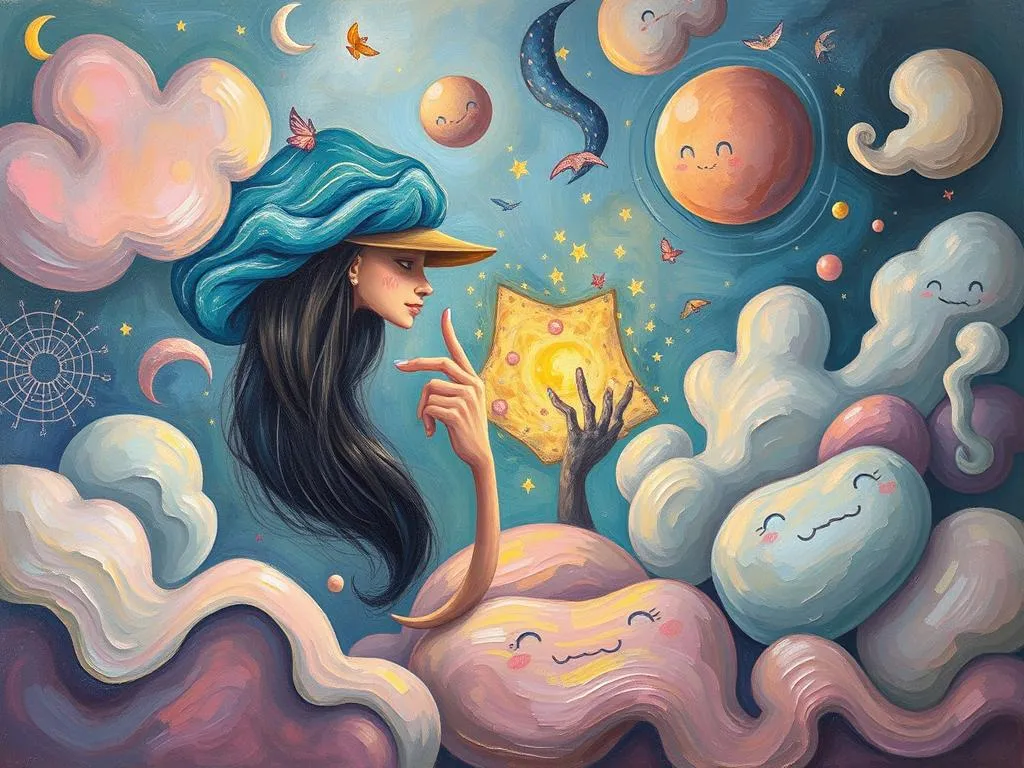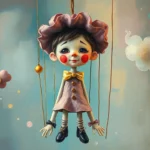
Introduction
Dreams have fascinated humanity for centuries, serving as a mirror to our subconscious minds. Among the myriad of dream experiences, one particularly intriguing phenomenon is the sensation of seeing oneself in dreams. This occurrence not only raises questions about identity and self-perception but also invites us to delve deeper into the significance and symbolism behind such dreams. The relevance of this topic lies in its ability to connect with universal human experiences—our desires, fears, and the complexities of our inner worlds. Understanding these dreams can offer profound insights into our waking lives, making it a subject worthy of exploration.
Symbolism and Meaning
When we dream of seeing ourselves, the imagery often carries rich symbolic meaning. The act of witnessing oneself can represent a variety of things depending on the context and emotions tied to the dream. At its core, this phenomenon is often linked to self-reflection and self-awareness. For instance, encountering oneself in a dream may signify an important moment of introspection. It suggests that the dreamer is grappling with their identity, values, or life choices, urging them to take a closer look at their current circumstances.
Moreover, the way in which one sees themselves in a dream can alter the interpretation significantly. For example, if you experience a positive image of yourself—perhaps you’re smiling or achieving something—it could reflect feelings of confidence and self-acceptance. Conversely, if the dream presents a negative self-image, such as seeing yourself in distress or disappointment, it may indicate inner turmoil or unresolved issues that need addressing.
Another common interpretation revolves around the concept of the ego. Seeing oneself in dreams can sometimes symbolize the ego’s struggle for acknowledgment. The dream may be a manifestation of one’s desire for validation, whether from oneself or others. This is especially relevant in a world where social interactions and perceptions weigh heavily on personal identity.
Additionally, different cultural perspectives can enrich our understanding of this dream. In some traditions, dreaming of oneself can be viewed as a spiritual journey or a call to connect with one’s higher self. It can symbolize the quest for enlightenment or deeper understanding of one’s purpose in life.
Ultimately, the meaning of seeing oneself in dreams is multifaceted, shaped by personal experiences and emotional states. It serves as a reminder that our inner worlds often seek expression, prompting us to explore the mysteries of our own psyche.
Key Scenarios and Variations
The diversity of scenarios in which one might see oneself in a dream can significantly shift the interpretation. For instance, if you dream of a younger version of yourself, this may indicate a longing for the innocence and freedom of childhood. It could also signify unresolved issues from that period of your life, urging you to confront past traumas or dynamics that still influence you today.
On the other hand, if you see an older version of yourself, the dream could reflect concerns about aging or a desire for wisdom and maturity. This scenario might evoke feelings of nostalgia or anxiety about the future, prompting you to consider how you want to evolve as a person.
Another variation involves the dreamer interacting with their reflected self. If you engage in conversation or face a conflict with this figure, it can symbolize an internal dialogue or struggle. This might indicate that you’re grappling with conflicting emotions or decisions in your waking life. The nature of this interaction can reveal much about your current mindset—whether you’re embracing your flaws or resisting them.
Moreover, the setting of the dream can provide additional context. For instance, if you see yourself in a familiar place, it might denote comfort and grounding in your identity. However, if the setting is unfamiliar or unsettling, it may suggest feelings of being lost or unsure about your direction in life.
Finally, consider the emotional tone of the dream. Are you feeling joy, sadness, confusion, or empowerment while witnessing yourself? The emotional backdrop can further illuminate the underlying messages of the dream, helping you understand what aspects of yourself need attention or affirmation.
Real-Life Connections and Takeaways
Connecting dreams to real-life situations can be a powerful exercise in self-reflection. Start by considering the context of your life when you experienced the dream. Are there significant changes or challenges you are facing? Reflect on how these might relate to the themes of identity and self-perception highlighted in your dream.
For instance, if you’re going through a transitional phase—such as starting a new job, entering a relationship, or experiencing a loss—seeing yourself in a dream could signify your mind’s attempt to process these changes. It’s essential to ask yourself questions like: How do I feel about these transitions? Am I embracing who I am becoming, or am I resisting change?
Another practical approach is to keep a dream journal. Documenting your dreams can help you identify patterns and recurring themes over time. Pay attention to the symbols and emotions that surface, and how they relate to your waking life. This practice can enhance your self-awareness and provide clarity on the issues at hand.
Moreover, consider engaging in creative expression as a means of exploring the feelings associated with these dreams. Whether through writing, painting, or another form of art, expressing your emotions can facilitate a deeper understanding of yourself and help you process any conflicting feelings that arise from seeing yourself in your dreams.
Lastly, don’t hesitate to seek guidance from a therapist or counselor if you find that your dreams are stirring up significant emotions or unresolved issues. They can offer support in navigating these feelings and help you develop strategies for personal growth.
In conclusion, the experience of seeing oneself in dreams is a profound invitation to explore the layers of one’s identity and inner world. By reflecting on the symbols, scenarios, and emotions tied to these dreams, individuals can gain valuable insights that resonate with their waking lives. Embrace the journey of self-discovery; your dreams are a powerful tool for understanding and growth.







